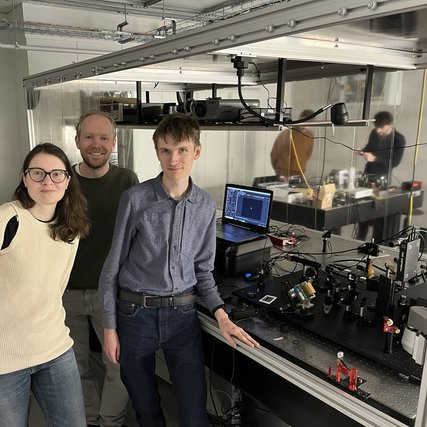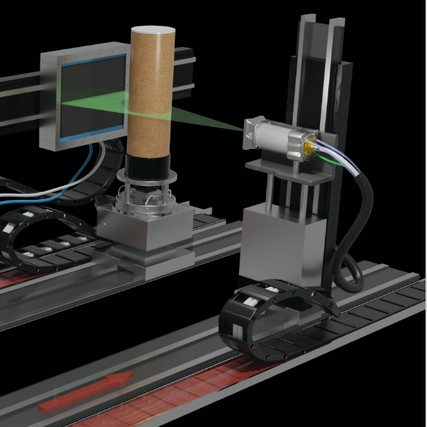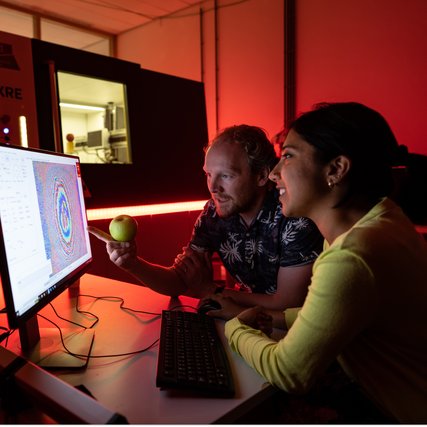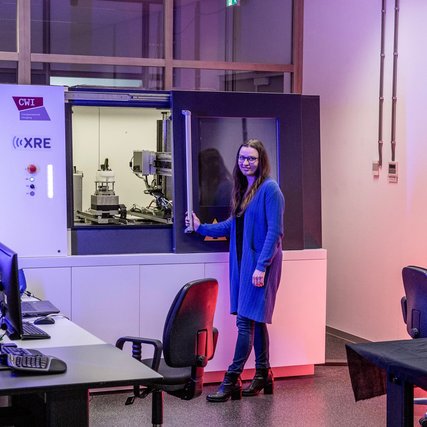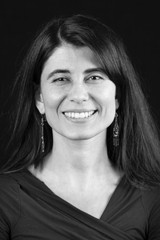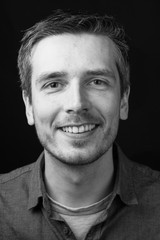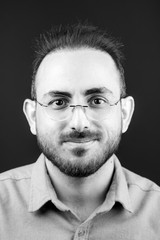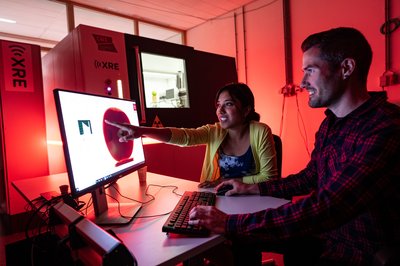
Our research group is developing the next generation of 3D imaging – enabling scientists to look further into objects of all kinds. Based on mathematics, algorithms and numerical solution techniques, our approach is interdisciplinary, combining aspects of mathematics, computer science and physics. We pride ourselves on the versatility of our solutions, and our algorithms can be applied to a wide range of imaging in science, medicine and industry. In Computational Imaging, it’s our goal to constantly push the boundaries of research. By combining advanced image acquisition, parameter estimation, and discrete tomography algorithms for example, we are able to develop workflows for 3D electron microscopy at atomic resolution.
More information on the Computational Imaging group at CWI and its FleX-ray Lab.
